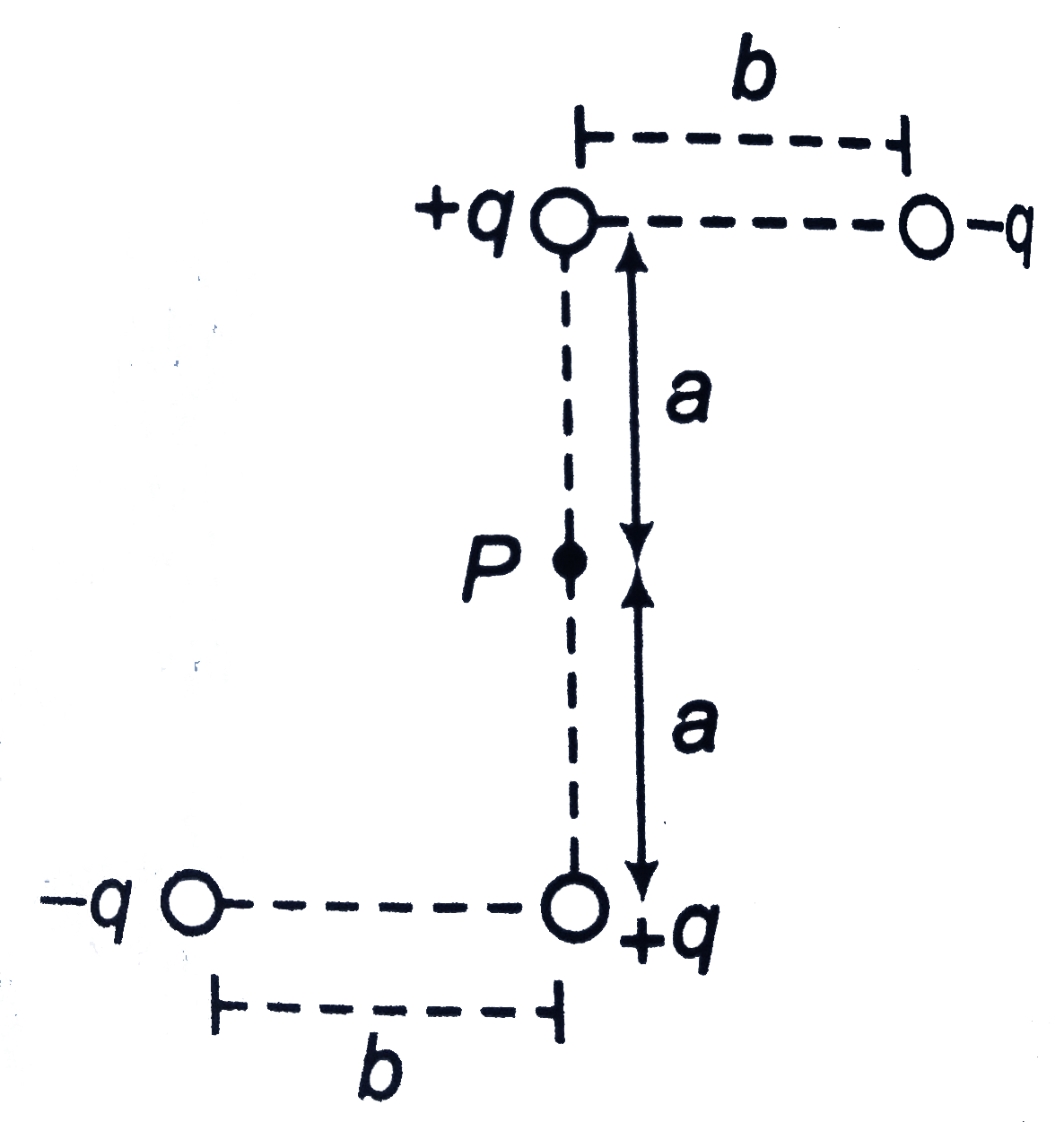The electrostatic potnetial due to an electric dipole at an equatorial point is
maximum
zero
minimum
not defined
The correct Answer is:B
To solve the question regarding the electrostatic potential due to an electric dipole at an equatorial point, we can follow these steps:
1. Understand the Electric Dipole:
An electric dipole consists of two equal and opposite charges, +Q and -Q, separated by a distance 'd'. The dipole moment p is defined as p=Q⋅d.
2. Identify the Equatorial Point:
The equatorial point of the dipole is located at a point that is perpendicular to the line joining the two charges and equidistant from both charges.
3. Use the Formula for Electric Potential:
The electric potential V due to a point charge is given by:
V=kQr
where k is Coulomb's constant and r is the distance from the charge to the point where the potential is being calculated.
4. Calculate the Potential at the Equatorial Point:
At the equatorial point, the distances from both charges (+Q and -Q) to the point are equal. Let this distance be r.
- The potential due to the positive charge +Q at the equatorial point is:
V+=kQr
- The potential due to the negative charge -Q at the same point is:
V−=k(−Q)r=−kQr
5. Add the Potentials:
The total electric potential V at the equatorial point is the sum of the potentials due to both charges:
V=V++V−=kQr−kQr=0
6. Conclusion:
Therefore, the electrostatic potential due to an electric dipole at an equatorial point is:
V=0
Final Answer:
The electrostatic potential due to an electric dipole at an equatorial point is 0.
---
An electric dipole consists of two equal and opposite charges, +Q and -Q, separated by a distance 'd'. The dipole moment p is defined as p=Q⋅d.
The equatorial point of the dipole is located at a point that is perpendicular to the line joining the two charges and equidistant from both charges.
The electric potential V due to a point charge is given by:
V=kQr
where k is Coulomb's constant and r is the distance from the charge to the point where the potential is being calculated.
At the equatorial point, the distances from both charges (+Q and -Q) to the point are equal. Let this distance be r.
V+=kQr
- The potential due to the negative charge -Q at the same point is:
V−=k(−Q)r=−kQr
The total electric potential V at the equatorial point is the sum of the potentials due to both charges:
V=V++V−=kQr−kQr=0
Therefore, the electrostatic potential due to an electric dipole at an equatorial point is:
V=0
The electrostatic potential due to an electric dipole at an equatorial point is 0.
Similar Questions
(i) Derive the expression for the specific for the electric potential due to an electric dipole at a point on its axial line.
(ii) Depiet the equivpotential surfaces due to an electric dipole.
View SolutionThe electric field due to an electric dipole at a distance r from its centre in axial position is E. If the dipole is rotated through an angle of 90∘ about its perpendicular axis, the electric field at the same point will be
View SolutionThe electric potential in volt due to an electric dipole of dipole moment 2×10−8 coulomb-metre at a distance of 3m on a line making an angle of 60∘ with the axis of the dipole is
View SolutionDirection of magnetic field at equatorial point
View SolutionThe electric field at a point due to an electric dipole, on an axis inclined at an angle θ(<90∘) to the dipole axis, is perpendicular to the dipole axis, if the angle θ is
View SolutionIn th electric potential on the axis of an electric dipole at a distance 'r' from it is V, then the potential at a point on its equatorial line at the same distance away frornt it will be
View SolutionThe electrostatic potential due to the charge configuration at point P as shown in figure for b << a is

View SolutionDraw electric lines of forces due to an electic dipole.
View SolutionThe value of electric potential at any point due to any electric dipole is
View Solution(a) Obtain the expression for the potential due to a point charge.
(b) Use the above expression to show that the potential, due to an electric dipole (length 2a), varies as the inverse square' of the distance r of the 'field point' from the centre of the dipole for r>a.
View Solution
